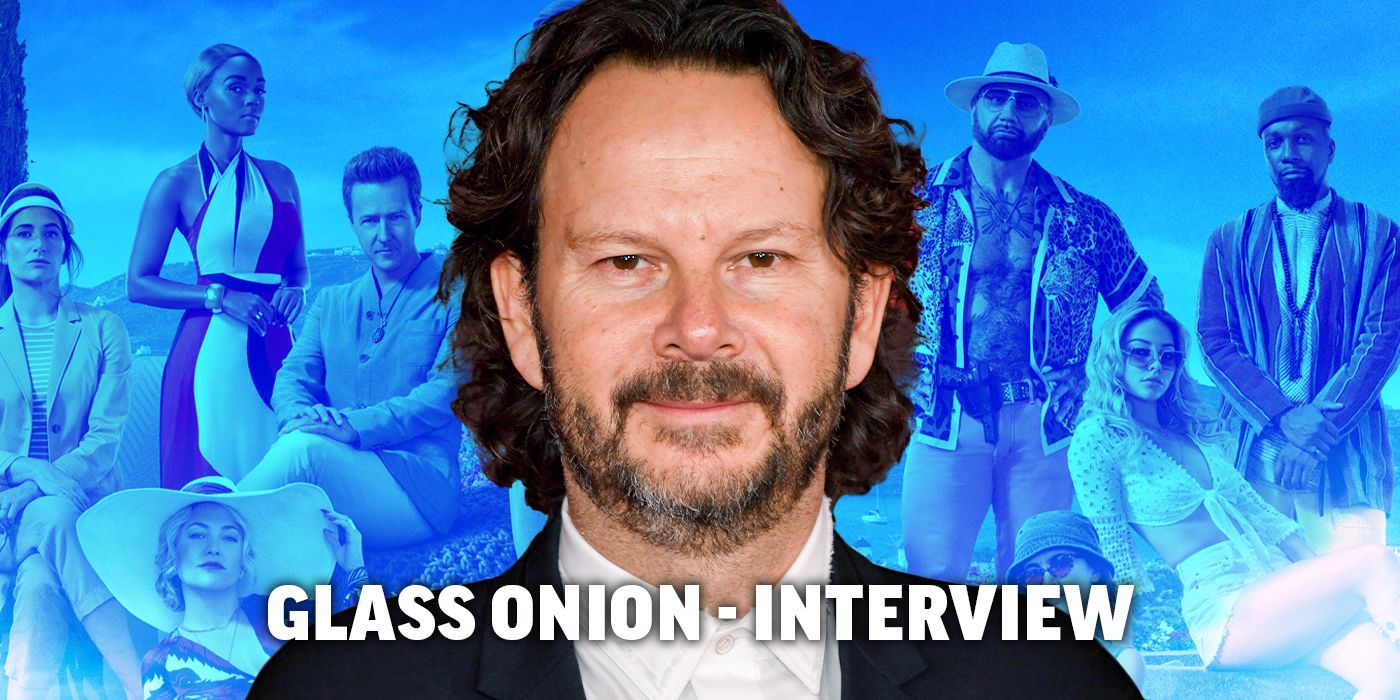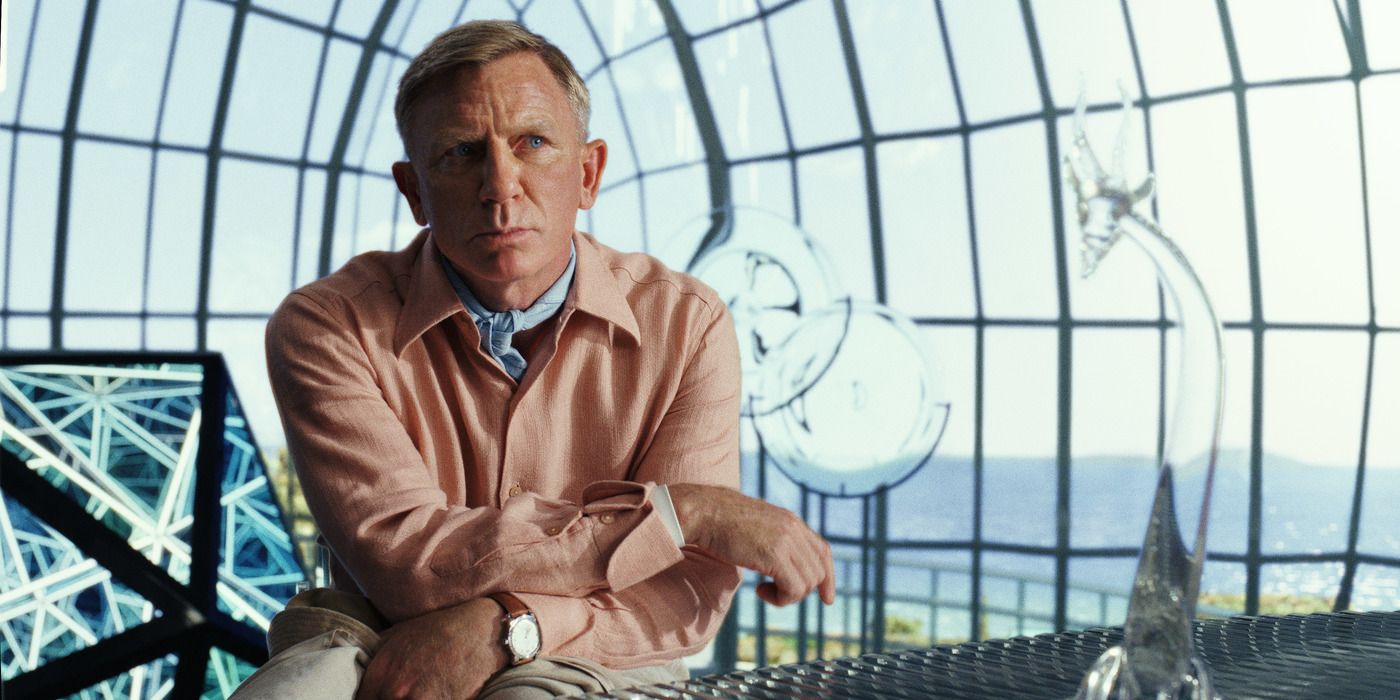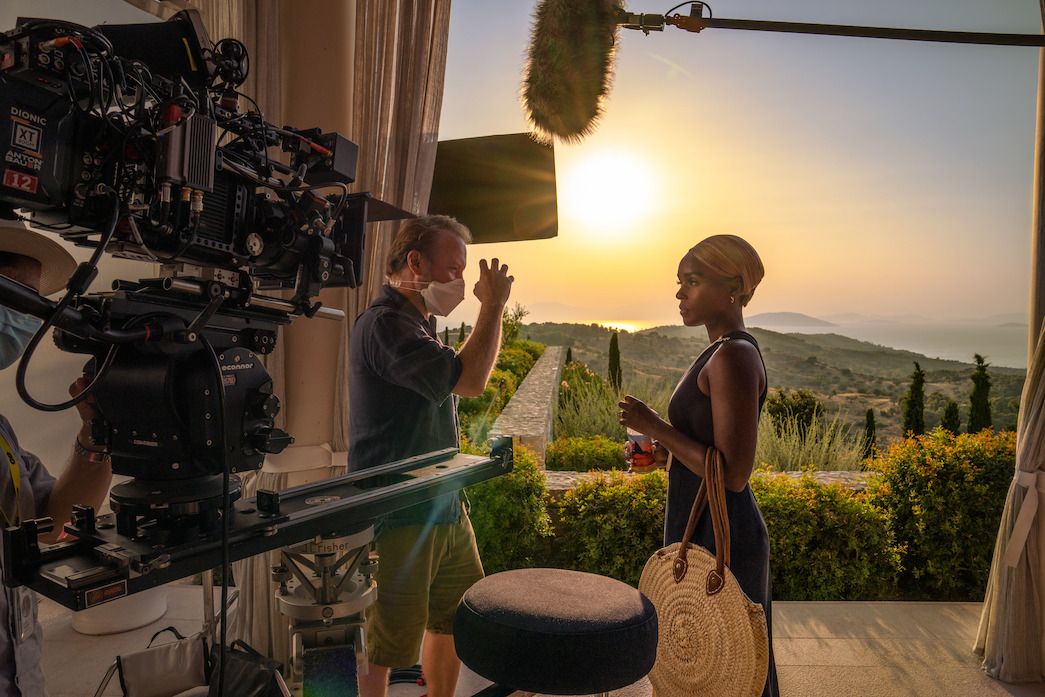In 2019, writer and director Rian Johnson’s Knives Out spun a modern flair on the classic whodunit with an ensemble cast of stars, including Daniel Craig as the distinguished southern Detective Benoit Blanc. Now, Johnson and producer Ram Bergman return to the universe that earned the filmmaker an Academy Award for Best Original Screenplay, with Glass Onion: A Knives Out Mystery, introducing a whole new stacked cast of suspects when tech billionaire Miles Bron (Edward Norton) invites his wealthy friends to his Greek island for a puzzling competition.
Blanc is back, and when someone on the island winds up truly dead the New Money crew are forced to forfeit their fun. Alongside Craig and Norton, Glass Onion features Kate Hudson as superstar model Birdie Jay, Kathryn Hahn as politician and hopeful-governor Claire Debella, as well as Dave Bautista as Twitch streamer Duke Cody, Leslie Odom Jr. as the engineer Lionel Toussaint, and Janelle Monáe as Bron’s former business partner Andi Brand. Also attending the revelry are Madelyn Cline as Whiskey, Duke Cody’s girlfriend, and Jessica Henwick as Peg, Birdie’s devoted assistant.
Ahead of Glass Onion’s premiere on Netflix on December 23, Collider’s Steve Weintraub was able to sit down and talk with the film’s producer, Ram Bergman. During the interview, Bergman explained how Johnson’s writing process works for the Knives Out scripts, which of their movies saw the most cuts in the editing process, how they handle test screenings for a movie full of spoilers, and how important those first test screenings are to the movie’s outcome. He also reveals the likelihood of a Knives Out 3. Watch what he had to say in the player above, or you can read their conversation below.
COLLIDER: Listen, I want to start with congratulations on the sequel.
RAM BERGMAN: Thank you.
It's fantastic. Talk a little bit about how it works with you and Ryan [Johnson] in terms of, when does he start telling you about his ideas for the sequel? Can you sort talk about that sort of conversation?
BERGMAN: Yeah, basically as soon as he's got his notebook I send him to go write. It’s really him thinking, and then [he] starts scribbling on his notebook. Once he has a core idea, we get together and he starts pitching it and goes through the key bits. He did the same thing on this movie. Clearly, the main thing of him going through the bits is the whole construction and the concept of the movie, which was clearly different, completely, than anything I imagine, than anything we've seen before in the genre. And I was like, "Holy shit, can you pull it off?" I got very excited about the idea. I was just like, “Okay, is it doable? Can you actually put it off?” And we start talking about it and we say how cool it will be if he can actually pull it off.
He basically then goes and starts doing more work. And really most of his work is like 80% outlining, and he spends most of the time outlining and figuring it out rather than actually writing it. Once he has it, he goes to write with just the quickest… that's the quick stage. And then he gave me the script, and I don't know if you’ve ever read any of Rian's scripts after you've seen the movies, they are very dense. Because you realize how many details there is there and you realize there's so much stuff going on. And he pulled it off. He absolutely pulled it off, and reading it was such a fun ride. And then the next thing was, “Okay I keep working on it and make sure it's better.” Hoping that people do find it… because when I read it I already knew what the concept is.
Sure.
BERGMAN: So, that's it. You start testing it and see how people respond and you go from there.
In the editing room, have any of the films really changed dramatically, or has it just been minor stuff?
BERGMAN: I would say the movie that took the most work in the editing room [was] probably Looper, but I would say both Knives Out and Glass Onion – I don't want to say what we filmed – but pretty early on you had a cut, which was really a very solid cut, and the rest is just fine-tuning, right? Trimming and changing, and performance, and doing things. Again, the 5 or the extra 10%, or the last 5, 10, 15% is really what takes the movie to the next level. And we spend a lot of time in the cutting room. We don't really live by a certain schedule. You have this kind of schedule and then you have to take your time. Every week we'll get it 1% better. It's worth it.
With a movie like this, there's a lot of spoilers, you don't want the reveals to get out. How does it work in terms of test screening it and showing it to people for honest feedback without the spoilers getting out?
BERGMAN: 100%. So first of all, when we do friends and family screenings, those are friends and family screenings and luckily none of those people would share anything. When we recruit people, we don't really say what movie they're going to go see. So, they don't know they're going to see Glass Onion, and even when they see the movie, there's no title deal on the movie.
Sure.
But we do ask people really kindly when they get to the test screen, “Please, please don't share.” And I’ve got to say, people have been really nice about it.
Did you guys learn anything from the test screening process that impacted the finished film?
BERGMAN: 100%. Always, always.
Can you talk about any specifics?
BERGMAN: No, but more than anything, you sit and you feel the audience and it's not even about notes you get, it's really not about the notes. It's like sitting with an audience and seeing how they react, how they respond, where they laugh, where they don't laugh, where it feels suddenly long. And to me, that's the best thing you get from the screening. We're all sitting there and you can feel, “Ah, this moment didn't really work, or this moment works, I didn't think it was going to work.” Some of the best stuff, in different movies, we didn't think [was] going to work, and when you go to the test screening, holy shit, people love that moment. You didn't think they would.
Did you know when you were reading it how funny it was?
BERGMAN: Oh yeah, I knew how funny. But you never know how funny it's going to be until they actually go do it on the set. But even then you don't know because when Rian goes and cuts it with Bob [Ducsay], holy shit, it plays completely different than how you read it. That’s the beautiful thing. You're literally rewriting the script completely in the cutting room. And many times, I've read the script a hundred times. I talk to Rian a hundred times. When I watch it for the first time it's not how I imagine. It's how he imagined, but it's not how I imagine it.
I already got to wrap. Just real fast though. Do you think Knives Out 3 will be the next thing you guys do?
BERGMAN: Yeah.
100%?
BERGMAN: 100%. I mean there's never 100%, but the intention is let Rian go take a break and go do it. We've all been energized by how people have responded to this movie, and again, we're having a blast making them. But yeah, I would suspect, unless something changes, that's going to be the next thing.
Glass Onion: A Knives Out Mystery is in theaters now, and premieres on Netflix on December 23. For more, check out Collider's interview with Daniel Craig and Rian Johnson below:


.jpg)

